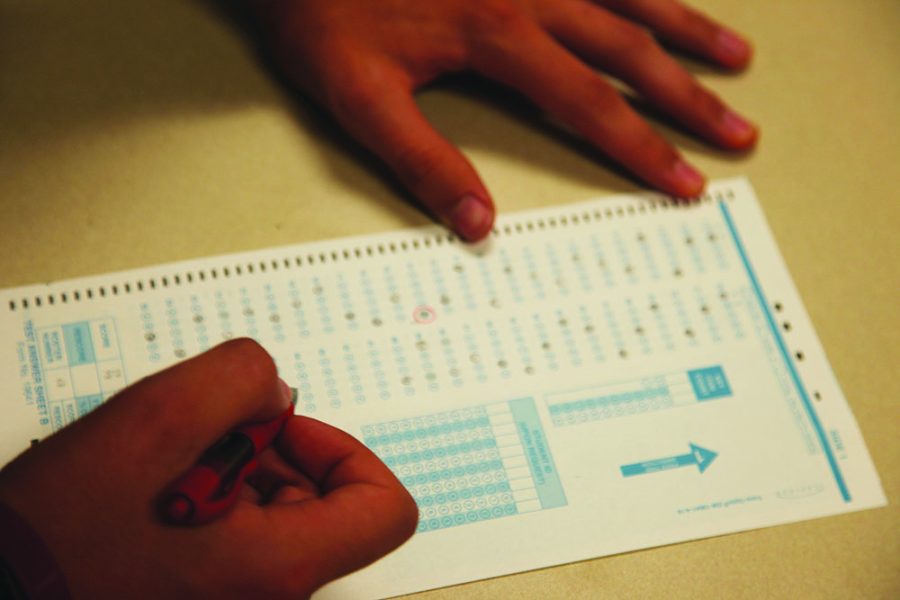Test questions should be discarded when missed by all
Teachers are docking students points on questions where the majority of the class has missed the question.
I have been confused by many things during my high school career: chemistry, boys, driving, just to name a few, but one thing that continues to baffle me is a teacher’s resistance when it comes to dropping test questions.
Most high schooler’s have had that experience. Your teacher is handing out tests and it seems like everyone missed that one curve-ball question, sometimes your teacher will even admit that the majority of students missed that question. It seems obvious to me that if the vast majority of students failed to grasp the necessary concepts needed to accurately answer that question, it is at the fault of the teacher, not the students.
Of course, this argument needs to be substantiated, not only by the actual percentage of students who missed that question, but also by how the teacher presented the information. This doesn’t apply to plot-based reading quiz questions, important scientific theories, or information clearly expected and presented, but what I truly don’t understand is when teachers refuse to give up pointless or poorly-worded questions.
This is true especially for math. The whole point of math is to teach problem solving skills and concepts that will be useful and applicable later in life. So why is my grade affected when my teacher decides to add an unreasonably difficult question to my quiz or test?
That’s what this whole issue boils down to, was the question reasonable to ask? If the concept was not emphasized in class, or just not generally understood, then I would hope that the concept was not vital to our understanding of the material, and if it was, then this is an obvious flaw in teaching skills.
The argument especially applies to poorly-worded or confusing questions. If a student can’t easily understand what the teacher is asking then that is the teacher’s fault, which they should acknowledge. There’s no apparent gain from these types of questions, so when the majority does not understand it, the question should be dropped from the final grade.
Another aspect to this argument I have yet to grasp is when teachers justify this decision based on their grading system. Whether it’s based on points or percentages, teachers should be sympathetic to students, especially when they are the one’s at fault, instead of docking points.
One or two points should not determine your grade, but I’d still like an accurate representation of my understanding of the material.
Your donation will support the student journalists of Palo Alto High School's newspaper

